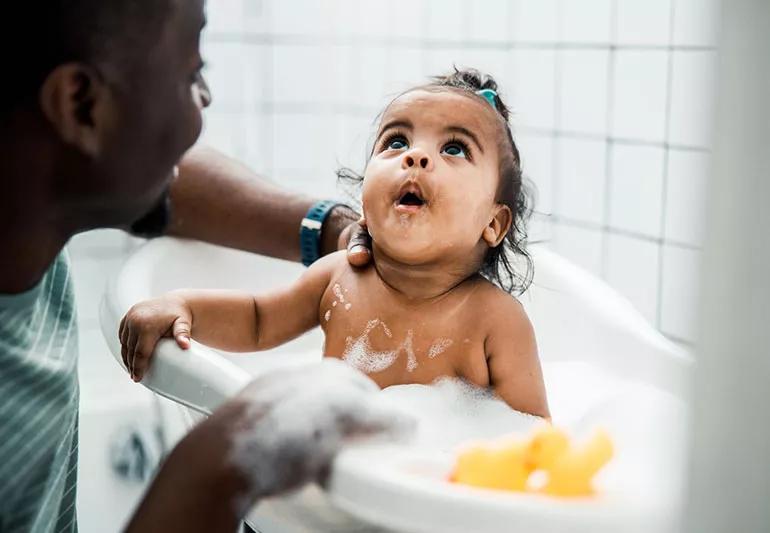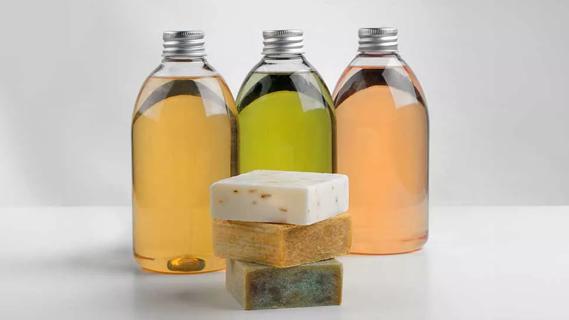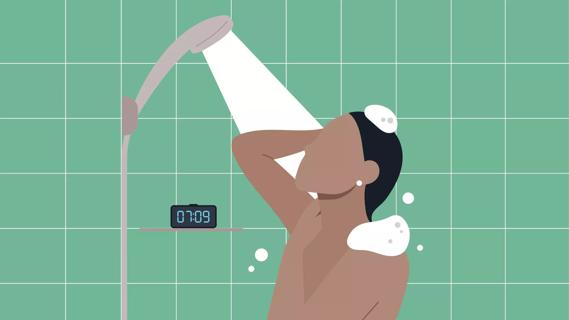Helpful guidelines for little ones and teens

Little kids get sticky, dirty and sometimes, really gross. It only takes a second for them to bury their heads in sandboxes or enhance their eyebrows with a permanent marker. And let’s not think about what happens when they eat popsicles (facepalm).
Advertisement
Cleveland Clinic is a non-profit academic medical center. Advertising on our site helps support our mission. We do not endorse non-Cleveland Clinic products or services. Policy
So should you dunk your sticky sweethearts into the tub (or shower in the case of teens and tweens) the moment they get home from school or daycare? Or, do you throw your hands up and accept the grime?
Dermatologist Joan Tamburro, DO, gives us the dirt on how often you should bathe your kids or have them take a shower.
Bathing recommendations depend on your child’s age, says Dr. Tamburro. She suggests these general guidelines:
There’s wiggle room, of course. If your cranky toddler is too tired, skipping bath night won’t be the end of the world. And if your baby has an impeccably timed post-bath diaper blowout, by all means — draw another one.
Advertisement
Also, don’t think everyone’s off the hook after spending a day in the water. “It’s important to bathe or shower after swimming in a pool, lake or ocean,” Dr. Tamburro says. So, getting wet doesn’t equal getting clean.
Conventional wisdom suggests that bathing too often can be drying and irritating for sensitive skin. But the conventional wisdom could use some updating, Dr. Tamburro says.
It’s true that harsh antimicrobial soaps can make your skin dry and itchy. She recommends avoiding those products unless your doctor has recommended them for a skin condition. Gentle soaps, though, are safe for frequent bathing.
“Choose mild soaps that don’t lather up too much and don’t have added fragrance,” Dr. Tamburro says. “And don’t assume all baby soaps are mild.” If you’re unsure how gentle your pick is, ask your doctor for recommendations.
Moisturizing is also key, especially if your kiddos have dry skin or you live in a dry climate. The best time to moisturize is right after a bath or shower, to lock in all the moisture.
Many kids have eczema, which causes the skin to become dry, red and oh-so-itchy. You might think too-frequent bathing could irritate the condition. But in reality, Dr. Tamburro says, “research suggests people with eczema should bathe more often.”
The reason: “Moisturizers work better on damp skin, and our goal in treating eczema is to restore the skin’s moisture barrier.”
Of course, if your kiddo’s skin suddenly flares up with dry, flaky, red patches, it may not be eczema. It could be a rash or an allergic reaction, so talk to your pediatrician or a dermatologist.
Bathing too often isn’t as much of a concern as bathing too little, Dr. Tamburro says. That’s especially true for adolescents, whose bodies are changing and producing more oils — and more odors.
It can be hard to convince a stubborn teen to make time for a shower, Dr. Tamburro concedes. For leverage, parents can point out that not showering often enough can lead to dandruff and may increase acne. (After all, no kid is happy about pimples.)
And parents of younger kids should accept that regular baths are part of the package. “Kids should be outside playing and getting dirty,” says Dr. Tamburro. “When they do, it makes sense to hit the tub.”
Advertisement
Learn more about our editorial process.
Advertisement

Bathing once a day is the general guidance, but you could also have reasons to soap up twice a day or not at all

You’re sharing your sheets with dust mites, bacteria and lots of dead skin, so you’ll want to keep your bedding fresh

You may notice itching, redness and swelling after wearing or using laundered items

We don’t fully understand how cleanliness impacts immune system development, but we do know that preventing illness is important

How often you lather up your locks can depend on various factors, like hair type, age and ethnicity

An icy blast may boost mental clarity, increase circulation and give your skin a little glow — but don’t overdo it

This olive oil-based soap is generally mild and safe when diluted

It’s a wash — when you bathe is a personal preference

Wearing a scarf, adjusting your outdoor activities and following your asthma treatment plan can help limit breathing problems

Your diet in the weeks, days and hours ahead of your race can power you to the finish line

When someone guilt trips you, they’re using emotionally manipulative behavior to try to get you to act a certain way